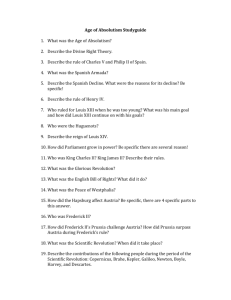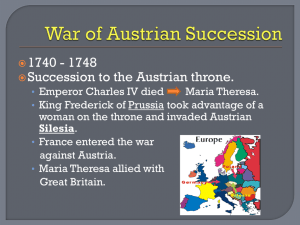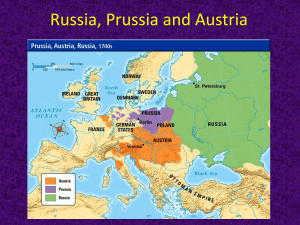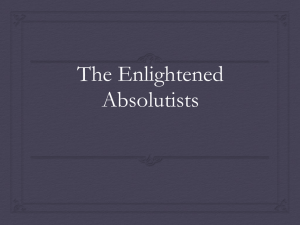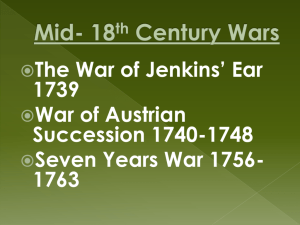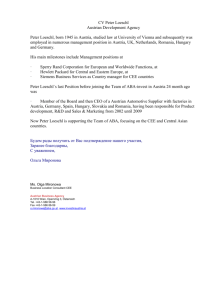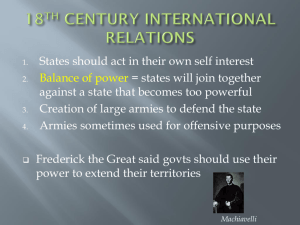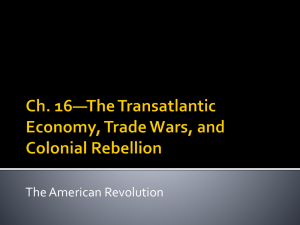War of Spanish Succession
advertisement
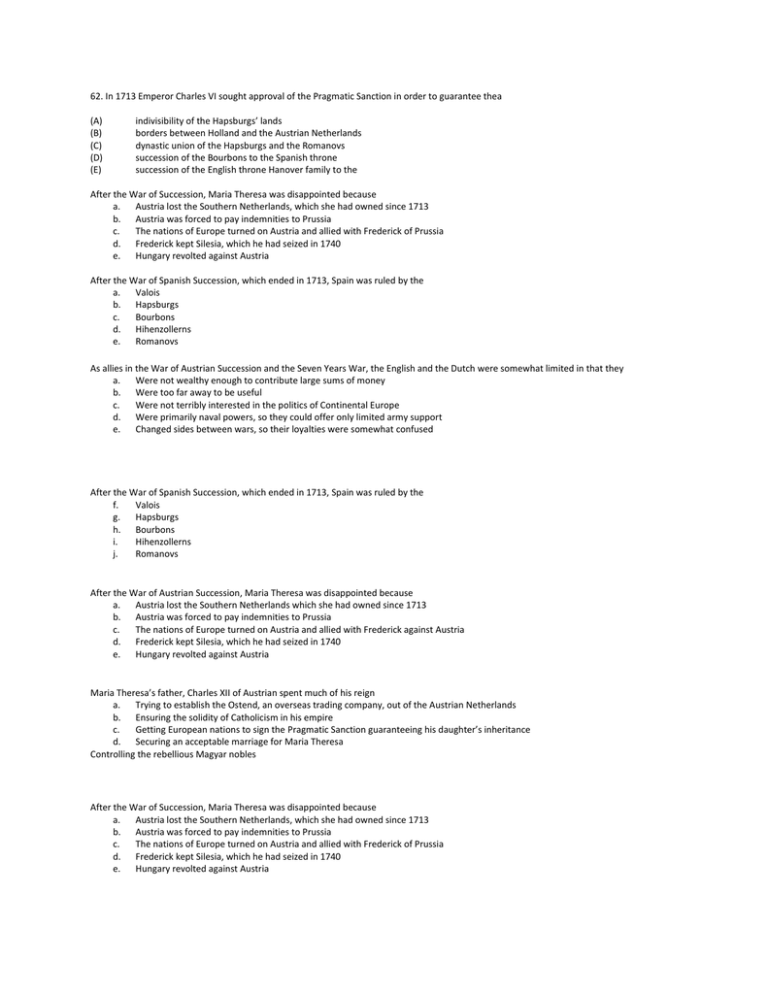
62. In 1713 Emperor Charles VI sought approval of the Pragmatic Sanction in order to guarantee thea (A) (B) (C) (D) (E) indivisibility of the Hapsburgs’ lands borders between Holland and the Austrian Netherlands dynastic union of the Hapsburgs and the Romanovs succession of the Bourbons to the Spanish throne succession of the English throne Hanover family to the After the War of Succession, Maria Theresa was disappointed because a. Austria lost the Southern Netherlands, which she had owned since 1713 b. Austria was forced to pay indemnities to Prussia c. The nations of Europe turned on Austria and allied with Frederick of Prussia d. Frederick kept Silesia, which he had seized in 1740 e. Hungary revolted against Austria After the War of Spanish Succession, which ended in 1713, Spain was ruled by the a. Valois b. Hapsburgs c. Bourbons d. Hihenzollerns e. Romanovs As allies in the War of Austrian Succession and the Seven Years War, the English and the Dutch were somewhat limited in that they a. Were not wealthy enough to contribute large sums of money b. Were too far away to be useful c. Were not terribly interested in the politics of Continental Europe d. Were primarily naval powers, so they could offer only limited army support e. Changed sides between wars, so their loyalties were somewhat confused After the War of Spanish Succession, which ended in 1713, Spain was ruled by the f. Valois g. Hapsburgs h. Bourbons i. Hihenzollerns j. Romanovs After the War of Austrian Succession, Maria Theresa was disappointed because a. Austria lost the Southern Netherlands which she had owned since 1713 b. Austria was forced to pay indemnities to Prussia c. The nations of Europe turned on Austria and allied with Frederick against Austria d. Frederick kept Silesia, which he had seized in 1740 e. Hungary revolted against Austria Maria Theresa’s father, Charles XII of Austrian spent much of his reign a. Trying to establish the Ostend, an overseas trading company, out of the Austrian Netherlands b. Ensuring the solidity of Catholicism in his empire c. Getting European nations to sign the Pragmatic Sanction guaranteeing his daughter’s inheritance d. Securing an acceptable marriage for Maria Theresa Controlling the rebellious Magyar nobles After the War of Succession, Maria Theresa was disappointed because a. Austria lost the Southern Netherlands, which she had owned since 1713 b. Austria was forced to pay indemnities to Prussia c. The nations of Europe turned on Austria and allied with Frederick of Prussia d. Frederick kept Silesia, which he had seized in 1740 e. Hungary revolted against Austria The War for Spainsh Succession (1740-1748) was caused by a. Prussian expansionist aims b. A revolt of Austrian nobles c. The Pragmatic Sanction d. French aggression All of the above 39. The Hapsburg Emperor Charles VI (1711-1740) issued his Pragmatic Sanction in order to: (A) provide for the division of his territories after his death (B) allow him to partition Poland (C) allow him to trade Protestant lands that he ruled in Germany for Catholic lands elsewhere (D) guarantee the succession of his eldest daughter to the throne (E) eliminate serfdom in his territories
